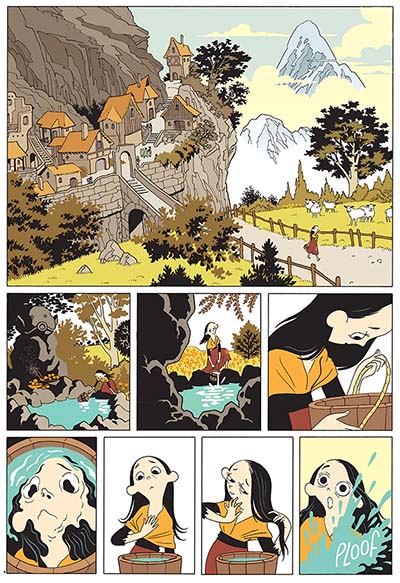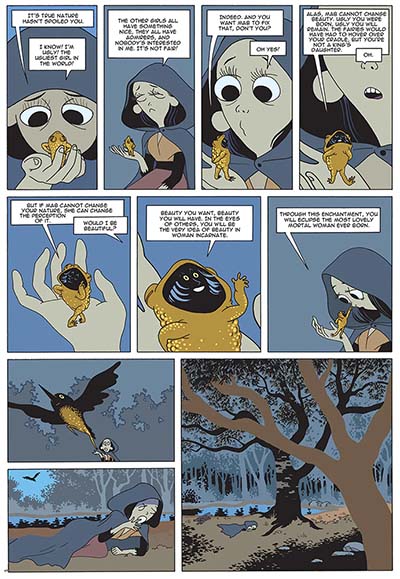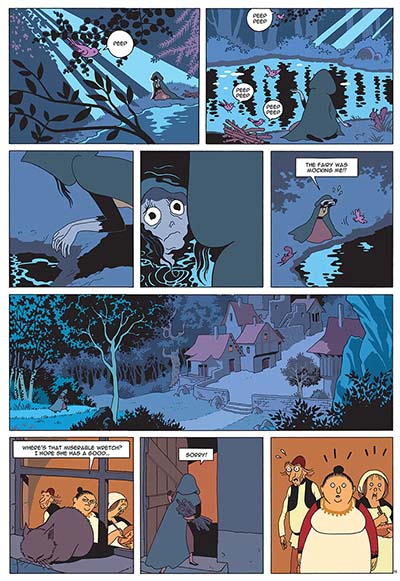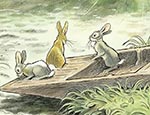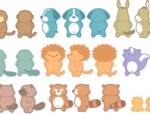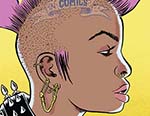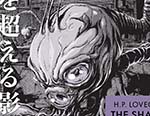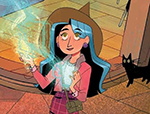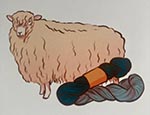Nothing is ever as it seems when Kerascoët — the French illustrators Marie Pommepuy and Sébastien Cosset — are tasked with bringing a story to life. One is led down a path that twists and turns in unusual ways, making for journeys that are often mysterious but always entertaining. How they came to work with the late French writer Hubert Boulard (1971-2020) is a tale deserving of more attention but, for now, we ought to simply be grateful that this translation exists. Beauty first appeared in three volumes between 2011 and 2013, and this English edition will, in a just world, compel publishers to give us more of what Boulard created.
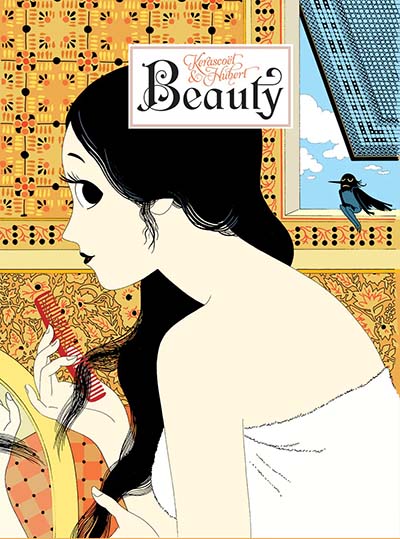
Boulard could have chosen to work with Kerascoët for multiple reasons, but he can’t have been unaware of their singular ability to exhibit the duality of human nature. The duo has long merged delicacy with the grotesque, creating panels that are simultaneously beautiful and terrifying. This is also a great way of describing the story, which begins like Cinderella before taking a sharp turn towards something far darker. There is humour too, but the overarching focus is on depths that men can sink to.
The protagonist, an ugly village girl called Coddie who stinks of fish, is granted a boon that turns out to be a curse in disguise, turning her into the eponymous Beauty that men salivate over and kill to possess. She is instantly turned into a commodity, her humanity ignored, and identity reduced to something skin-deep. What happens next reiterates that oft-repeated piece of advice: be careful what you wish for.
In lesser hands, this would be a simplistic story; here, it is elevated to something more substantial. There are sparkling moments of wit, stunning backdrops, and a large cast rendered with a great deal of individuality as they weave in and out of Beauty’s tragic, colourful life. There are also morals here, for those inclined to uncover them, but Hubert and Kerascoët skilfully prevent the book from devolving into a philosophical treatise on how loveliness can be corrosive. The art reflects this, with panels often juxtaposing Coddie’s real face with how she is perceived by those around her. It isn’t always easy to do, but then, Kerascoët have captured this kind of dichotomy before, most notably when they worked with writer Fabien Vehlmann on Beautiful Darkness.
Beauty slowly comes to terms with the terrifying power of her good looks, but it takes a lifetime of sadness and learning to bring her to a state of wisdom. Most of the men in her life are sacrificed in the bargain, along with scores of unnamed minions, like those faceless warriors who pay for coming into Helen of Troy’s orbit. Hubert manages to give his heroine a certain subtlety, rescuing her from one-dimensionality. She isn’t the brightest bulb in the room, but she also has a certain misplaced empathy. She understands how destructive her wish is, but still allows her naivety to ruin the only people capable of accepting her for who she really is.
One is left with lingering questions about the fairies, and why they feel the need to interfere with human lives, but that may be just nitpicking. The book also meanders in parts when the brutality starts to feel as if a point is being belaboured. Still, the wry manner of its ending leaves one with a smile. Why argue with that?
Hubert (W), Kerascoët (A) • NBM Publishing, $19.99
Review by Lindsay Peirera





